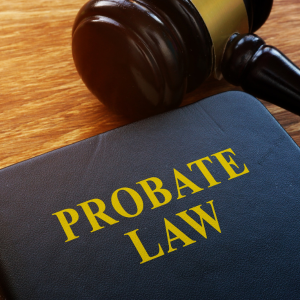
Comprehending Heir Property in Texas
Heir property in Texas is a unique problem in the real estate market. It is often passed down through many generations, with many family members sharing ownership, which can make things much more difficult. Anyone seeking to navigate the state’s probate system needs to have a good grasp of how complicated it is. Heir property situations often involve problems with ownership rights, legal duties, and family ties, all of which add their own level of complexity. It takes patience, cooperation, and a good understanding of Texas probate regulations to handle these connected parts. If you want to sell inherited property, you need to know a lot about estate law. This means learning the most typical problems heirs confront and the legal rules that govern how Texas probate handles heir property.
Heirs Often Face These Problems
When property is left to more than one successor, problems nearly invariably come up. These problems happen mostly when numerous family members hold the property, and everyone has their own ideas and interests. People often disagree on whether to sell or keep the land, and it might take a long time to come to an agreement. If one or more heirs reside on the land and others do not, things get much more complicated. In these situations, the people who live there may not want to sell, which can cause tension between family members and make things more complicated legally and emotionally.
Another major problem is not having clear legal documents proving ownership. A lot of heir properties are never properly listed in the county’s property records. This makes it hard to sell or transfer the asset. It is hard to finish a sale or even get money for repairs without a clear legal title. If the person who died didn’t leave a will or deed saying what they wanted, things get much more problematic. Figuring out who owns what in these situations might take a long time. Texas law says that probate actions must be held to prove lawful ownership. These proceedings can take a long time and cost a lot of money, leaving heirs with a lot of paperwork and confusion.
Family relationships make things even harder when it comes to inherit property. When it comes to inherited property, emotions can run hot, and fights between brothers, cousins, or other relatives can get out of hand very fast. To handle these connections, you need to be patient, honest, and understanding. If you rush through decisions or don’t listen to some family members’ worries, it might cause long-lasting rifts. It is important to have open communication, clear legal advice, and early agreement-building. Families can better deal with the problems that come with shared inheritance and keep their relationships strong by being both emotionally sensitive and legally accurate.
Things to think about when it comes to Texas probate law

If you want to handle heir property in Texas, you need to know how the state’s probate system works. Probate is the legal process of confirming a will and dividing up the property of someone who has died. The process is usually easier if there is a legal will because it clearly states what each successor will get. A well-written will can help keep things clear, cut down on arguments, and speed up the process of dividing up assets. But Texas law makes things more complicated when there is no will. It usually requires the involvement of probate court to figure out who owns what and how much of an inheritance each person should get.
The first thing to do is find out if the person who died left a will. The executor appointed in the will is in charge of managing the estate, paying off debts, and dividing up the deceased person’s assets according to their wishes. If there is no will, the probate court chooses an administrator to handle these tasks. This can make things much more difficult, especially if the heirs can’t agree on what to do with the estate.
If heirs want to sell property they inherited, they need to know a lot about estate law. Texas probate rules must be followed when selling this kind of property. These rules are meant to safeguard everyone concerned. Most of the time, these rules include checking all of the ownership paperwork, paying off any bills or taxes that are still owed on the estate, and in some situations, getting the court’s authorization before going through with the sale. Heirs can feel more confidence about following these processes if they work with a lawyer who specializes in estate or family law. This will make sure that they follow all state laws.
Disagreements can sometimes arise during this process, and it’s not uncommon. When heirs can’t reach an agreement about selling the property, Texas probate courts may step in to help mediate or issue a ruling that everyone must follow. Although going through the court system can take time, it provides a fair and legally binding way to resolve disputes. To ensure a smooth and proper outcome, it’s important to keep communication open, document everything carefully, and follow all probate rules.
For those facing these challenges, we buy houses in Texas, including probate properties, offering a straightforward solution when selling becomes complicated.
The Steps to Selling Property You Got from Someone Else
Selling an inherited property can be both legally complex and emotionally challenging—especially under Texas probate law. In many cases, multiple heirs are involved, and each person’s consent is typically required before a sale can move forward. Understanding the necessary documents and the steps to take early on can make the process much smoother. Maintaining clear communication among heirs while following all probate regulations helps ensure a seamless transaction. With the right preparation, families can sell inherited property and sell your house fast in Arlington, with greater confidence and peace of mind.
Do All Heirs Have to Agree to Sell the Property?
Yes, in most circumstances, all heirs must agree before selling property that was left to them. This criterion comes from the idea of co-ownership, which means that each heir has an equal stake in the property. So, every co-owner has a say in what happens to the property. When everyone can’t agree, the transaction process often stops, which might lead to legal problems. The family and probate laws of Texas back up this idea by stressing equitable treatment and agreement among heirs.
But if problems keep happening, mediation or going to court may be necessary. A partition action is a frequent way to get legal help in Texas. This gives the court the power to either split the property up among the heirs or sell it and split the money fairly. Partition acts are quite helpful when communication has broken down, but you need to think them through very carefully. These proceedings can take a long time and make things worse, so people usually only go through with them when all other attempts to reach an agreement have failed.
Probate courts often act as neutral third parties in these kinds of conflicts, helping heirs find fair solutions. In cases when some heirs want to sell and others don’t, going to court makes guarantee that everyone’s interests are heard and fairly represented. Attorneys that know a lot about probate and family law can be quite helpful in these situations. They can explain legal rights and help families avoid fights that aren’t necessary. Ultimately, heirs can make smart choices that respect both family bonds and state law if they grasp the legal foundation for selling heir property.
What You Need to Sell Heir Property

Before selling property that you inherited, it’s important to make sure that all the necessary paperwork is in order. In Texas, the probate process depends on certain legal papers that prove title and give permission for a sale. These usually include the deceased person’s will, which says how their property should be divided. Without a will, the probate court must officially name the lawful heirs before giving them permission to sell the property.
The deed is another important paper. A deed shows who legally owns something, and it must be updated to show the current heirs before the property may be sold. Heirs or executors must also get “letters testamentary” or “letters of administration” from the probate court. These official papers give the executor or administrator the legal right to handle and sell the estate’s property, making sure that the rules of probate are followed.
Heirs must also make sure that all of the estate’s debts, property taxes, and liens are paid off before they can sell it. If you don’t meet these requirements, the deal could be delayed or even canceled. It’s just as vital for heirs to keep open lines of communication during the paperwork procedure to avoid any confusion. Working with an expert probate lawyer may make this step much easier by making sure that all legal criteria are met and that the sale goes through without any problems.
Legal Ways to Settle Disagreements Between Heirs
It can be both a privilege and a curse to inherit property that is shared by more than one heir. When there are disagreements, it’s important to know what legal options are available under Texas law. Partition actions and probate court mediation are two important ways to settle disputes in an organized way. These legal options strike a compromise between fairness and pragmatism, making sure that property is handled fairly and keeping family conflict to a minimum.
When to Think About a Partition Action
When heirs can’t agree on how to manage or sell property they receive, a partition lawsuit is a strong but last-resort legal instrument. In Texas, the court can either split the property into separate parts or order its sale, with the money going to the owners based on their ownership interests. This method works, but it needs to be carefully thought out because it can hurt family bonds and add expenditures.
Before launching a partition action, heirs should look into mediation or other ways to work together to find a solution. Mediation is frequently more effective and less confrontational than other methods. It gives people a chance to talk things over with the support of a neutral facilitator. If mediation doesn’t work, the next step is to file a partition action. The Texas probate system has a clear structure for these kinds of cases, which makes sure that the procedure is fair and open.
In this case, it is very important to hire an experienced estate lawyer. Lawyers help heirs understand their rights, get the paperwork ready, and speak for their interests in court. They also assist protect against typical mistakes, including selling the property for less than it’s worth or agreeing to unfavorable terms. It may seem scary to file a partition action, but with the right legal help, it may be a good way to find a solution when all other options have been tried.
How the Probate Court Helps Settle Disputes
The probate court is very important for settling issues when heirs can’t agree. The court is an impartial authority that makes sure that Texas law treats all heirs fairly. It checks ownership records, makes sure documentation are correct, and keeps an eye on the distribution of money if the property is sold. This court review keeps the process open and honest and stops one side from getting an undue advantage over another.
The probate court has more duties than just filling out forms. It also helps settle disagreements on whether to sell the property or keep it. During these sessions, each heir can make their case, usually with the help of a lawyer. The court’s ultimate decision tries to find a balance between fairness and pragmatism. It either encourages a compromise or, if necessary, orders the sale of the property and divides the money equitably among the heirs. Probate lawyers help families through these processes by looking out for their best interests and making sure that all the rules are followed. In many situations, the court’s involvement ends long-running arguments, letting families move on while still honoring the memory of the person who died.
Getting the most money for your property before you sell it
Getting the most money for inherited property before selling it should be a key focus. Strategic changes and smart sales choices can have a big effect on the end result. To get the highest possible financial return, you need to make the property more appealing, understand the advantages and pitfalls of cash offers and open-market listings, and recognize the importance of needing a lawyer in selling my house to ensure all legal matters are properly handled.
Making Real Estate More Attractive
Making inherited property look better and work better can make a big difference in getting buyers. Start with curb appeal. A fresh coat of paint, well-kept landscaping, and small repairs may make a big difference in how people see your home. Repainting in neutral colors, modernizing fixtures, or renovating kitchens and bathrooms are all easy changes that can make a big difference in how much people think a home is worth.
It’s also crucial to point out the property’s distinctive traits. If you want to sell a house in Arlington, TX, for example, you could stress how close it is to schools, parks, and retail centers. If the house has historical or architectural features, showing them off might make it stand out from other listings. Modern buyers are more interested in energy-efficient upgrades like better insulation or solar panels, which can help justify a higher asking price.
The property’s presentation can also be improved by professional staging and high-quality photos. Buyers can picture themselves in the room better when it is staged, and professional images and internet listings make it more visible. These techniques work together to make the market more appealing, bring in more competitive offers, and, in the end, make the transaction more profitable.
Deciding Between Cash Offers and Open Market Sales
The heirs’ ambitions and situation will determine whether they choose a cash offer or an open-market sale. Families that want a quick, easy sale should look for cash offers. They usually close faster and don’t have as many requirements. But these offers are usually lower than what the market is willing to pay since investors want to make money quickly.
Selling on the open market normally makes more money, but it takes more time and work. This strategy gives the property access to a bigger group of purchasers, which makes it more likely that there will be competitive bids. But it also has hazards, such delays in getting funding or deals that fall through. successors need to carefully think about these things, taking into account the property’s condition, location, and the priorities of all the successors.
Open-market listings are often the best choice for properties that are worth a lot of money or are in good condition and in good locations. On the other hand, a cash sale might be better for homes that need a lot of work or for heirs who want everything to be settled quickly. Families can make smart, well-informed choices that are in line with their financial goals and family dynamics by talking to a knowledgeable real estate agent or probate lawyer.
Tax Effects and Useful Advice for a Successful Sale

There are also major tax issues to think about when selling inherited property. In Texas and federal law, heirs usually get a “step-up” in basis, which means that the property’s value is based on its market value at the time of succession instead of its original purchase price. This means that heirs usually only have to pay capital gains taxes on the value of the property that goes up after they get it. If, for example, a house was worth $200,000 when it was inherited and later sold for $250,000, the taxable gain is $50,000.
Heirs can arrange the sale better and pay less in taxes if they know what these things mean. It is very important to go to a tax advisor who knows a lot about real estate and probate. They can help you understand possible deductions, exemptions, and reporting requirements, making sure you follow the rules while getting the best financial results.
Planning ahead is essential for a smooth and stress-free home sale — especially when dealing with taxes and probate. Make sure all necessary probate paperwork, such as letters of administration or testamentary, is completed. Obtaining a professional property evaluation helps establish a fair asking price and prevents future disputes. Open communication among heirs and guidance from experienced professionals ensure every step follows legal requirements and respects the family’s wishes.
By staying organized legally and logistically, families can simplify the selling process, avoid unnecessary conflicts, and preserve the value of their inherited property. This careful preparation ensures that the final sale honors both financial and family values.
Texas Cash House Buyer buys houses for cash in any situation — call us today to make your sale fast, fair, and hassle-free.
FAQs:
What problems do heirs in Texas have with heir property?
Heirs often have problems with ownership, ambiguous legal titles, and emotional arguments about whether to sell or maintain the property. These things typically cause legal delays and make family relationships worse.
How does a will influence the Texas probate process for property that belongs to an heir?
A proper will makes probate easier by making it clear who owns what. Without one, the procedure gets more complicated, and the court typically has to step in to figure out who the real heirs are.
What is a partition operation, and when do people utilize it?
If heirs can’t agree on what to do with the property, a partition action is a legal process that splits or sells it. It is usually employed as a final resort when mediation doesn’t work.
What does the probate court do to settle disagreements amongst heirs?
The probate court is a neutral authority that checks ownership, settles disagreements, and makes sure that all heirs are treated fairly. It may tell people to sell or divide property when it needs to.
What do taxes mean for selling property you inherited in Texas?
When you sell property that you inherited, you usually have to pay capital gains tax. This tax is based on the “step-up” value at the time you got the property. You just have to pay taxes on the profit you made since that value.
Helpful Arlington Blog Articles
- Can Heir Property Be Sold in Arlington, TX
- Do I Need a Lawyer To Sell My House in Arlington, TX
- How Long To Move Out After Foreclosure Auction in Arlington, TX
- Average Cost to Sell a House in Arlington, TX
- Fun Facts About Arlington, TX
- Arlington, TX Property Tax Rate
- Free Things to Do in Arlington, TX
- Arlington, TX Neighborhood Map
- Tax Implications of Selling Home in Arlington, TX
- Paint My House in Arlington, TX to Sell It?
- Selling Rental Property at a Loss in Arlington, TX
- Selling an Old House in Arlington, TX?
- Can I Sell My House in Arlington, TX, with a HELOC?
- Arlington, TX Property Managers
- Best and Worst Neighborhoods in Arlington, TX

